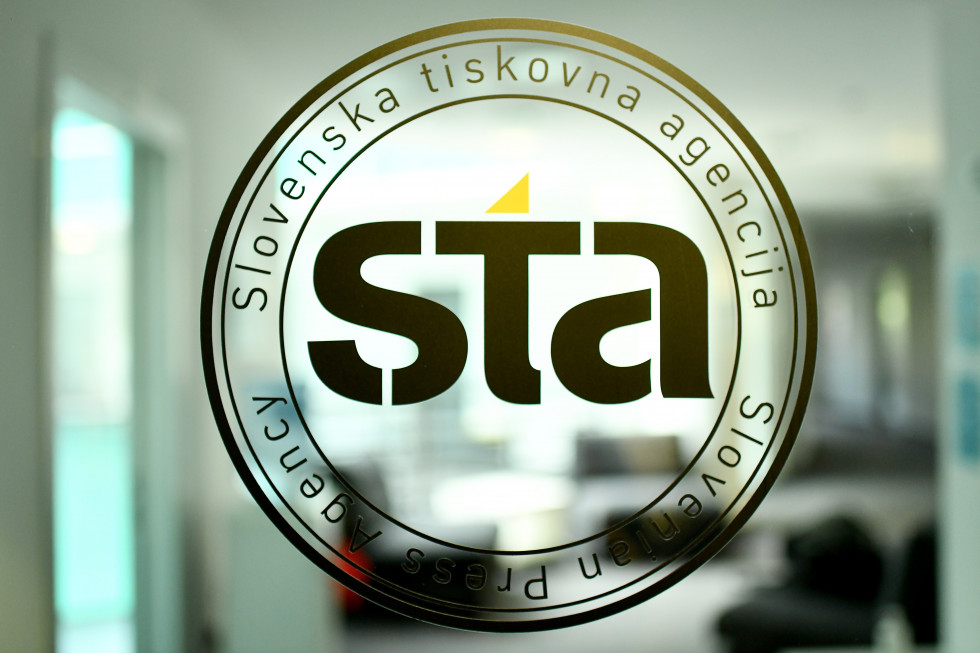To mark World Press Freedom Day on May 3, the International Press Institute (IPI) is supporting a crowdfunding campaign to support the Slovenian Press Agency (STA), which has had its financing suspended by the government for more than four months now.
The campaign was launched today by the Slovenian Association of Journalists (DNS) and the Trade Union of Journalists and brings together numerous organisations and stakeholders supportive of the STA from across Europe.
The campaign comes after the Slovenian government’s communication office, UKOM, suspended payment for services provided by STA and refused to pay monthly instalments for STA services for October and November 2020.
Funding was suspended for a second time by UKOM in 2021, meaning the agency has now been without its central source of state funding for 123 days, seriously jeopardizing its financial stability and undermining its institutional and editorial independence.
Since then, it has survived by loans and market revenues from other services. But if funding is not reinstated immediately the STA faces bankruptcy in less than a month. In the worst-case scenario this means the jobs of some of the STA’s 90 employees and journalists are at risk.
“If the STA does not receive the funding it needs soon, a vital part of the Sovenian media ecosystem will be silenced and an important source of the country’s independent news and information will be lost”, said IPI Deputy Director Scott Griffen. “That is why to mark World Press Freedom Day, IPI is today joining partner organizations across Europe in standing up for the STA and demanding that the Slovenian government of Prime Minister Janez Janša immediately unblock its financing to allow the agency to continue to carry out its vital public service mission.
Griffen added: “This attempt to meddle in the stability and independence of the STA has gone on long enough. It is time for the government to recognise the independent journalism of the STA as a public good. Going forward, the STA’s institutional independence must be protected and the public attacks on its management must be stopped.”
IPI has previously warned that the suspension of the STA’s funding is an attempt by the administration to starve the agency of resources, undermine its sustainable funding model, and undercut public trust in its journalism.

Information as a public good
Last week, the European Commission confirmed that EU state aid rules are not a reason for the Slovenian government not to pay outstanding liabilities to the STA, paving the way for the financing to be reinstated. However, UKOM has previously rejected repeated requests for payment, most recently on 29 April.
In response, the goal of the crowdfunding campaign is to raise €2 million, roughly the amount of public funds that the STA receives annually for carrying out its activities of informing the Slovenian public about national and international news. The target can be met if every Sovenian citizen donated one euro.
Petra Lesjak Tušek, president of the Slovenian Association of Journalists, said: “Despite being starved of resources by the government, the colleagues at the STA remain strongly committed to professional work, even as their position grows more precarious every day. Journalists who have built their credibility with the help of STA content, essential as it is to our work and the public’s right to be informed, retain a strong commitment as well.
“We will not abandon our commitment to unearthing facts and putting them into context, something that the Government appears not to be willing to stand. We are convinced that critical readers, viewers and listeners also remain committed to the expectation that critical journalists will survive in a democratic country, that media freedom will not be curtailed, and that attacks on journalists will not be acceptable in public discourse.”
Alenka Potočnik, president of the Trade Union of Slovenian Journalists, said: “The developments concerning the financing of the STA public service show just how vulnerable media and journalists are. A few years ago the Trade Union of Slovenian Journalists raised its voice in support of staff at private media companies which curtailed labour rights and conducted layoffs in their desire to maximise profits, now we are in a position where the government exerts pressure on both public service media, the STA and RTV Slovenija.
“In the case of the STA it has gone as far as suspending public service financing to jeopardise the company’s liquidity, putting at risk the jobs of around 90 employees and the social security of their families. The people deserve a high-quality information service, fast and credible information. Everyone, not just the media and journalists, must therefore stand up for the survival of the STA.”
Campaign launched
The campaign Za obSTAnek will be underway throughout May. You can donate directly via a bank transfer (account number Si56 6100 0002 5727 075) or by sending an SMS from a Slovenian mobile number to 1919 with the keywords STA1 (donate 1 euro) or STA5 (donate 5 euros). All information about the campaign is available at zaobstanek.si (the English page is under construction and will be available soon).
The campaign is a collaboration between friends of the STA, including the Trade Union of Slovenian Journalists, the European Federation of Journalists (EFJ), the European Alliance of News Agencies (EANA) and numerous Slovenian media including Dnevnik and Nedeljski Dnevnik, Delo, Večer, Primorske Novice, RTVS, POP TV, Mladina, Žurnal24 and others. The action has been supported by the trade union associations ZSSS, Pergam and KSJS and also by the Journalism Chair at the Faculty of Social Sciences.
Media, NGOs, companies and others who wish to become friends of the STA and take an active part in the campaign should write to [email protected] to receive an information package. To learn more visit zaobstanek.si
This statement by IPI is part of the Media Freedom Rapid Response (MFRR), a Europe-wide mechanism which tracks, monitors and responds to violations of press and media freedom in EU Member States and Candidate Countries.

